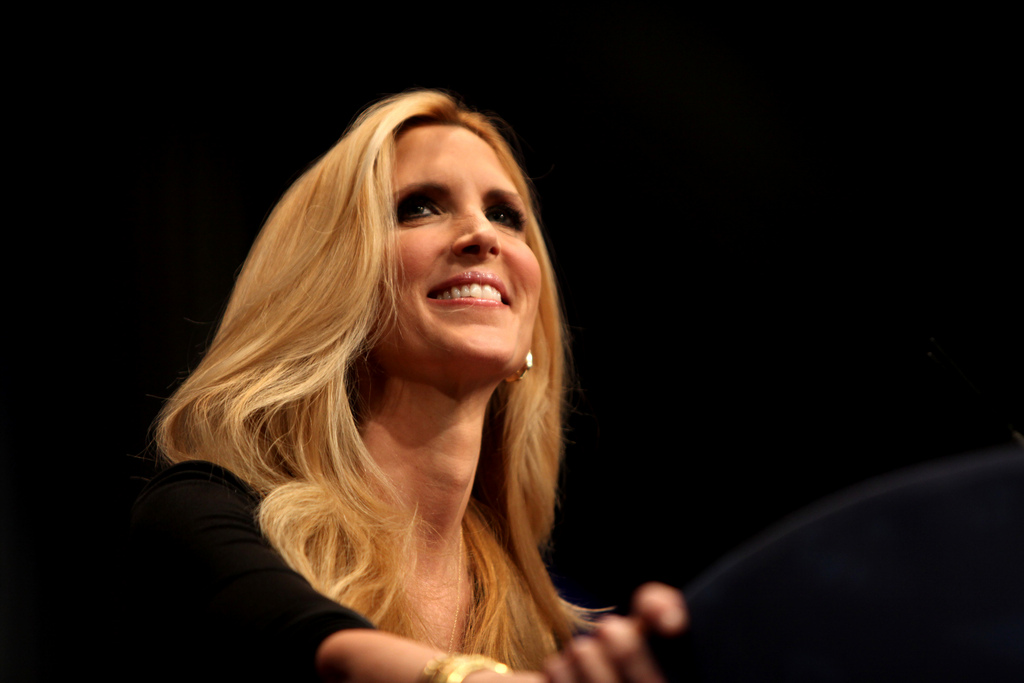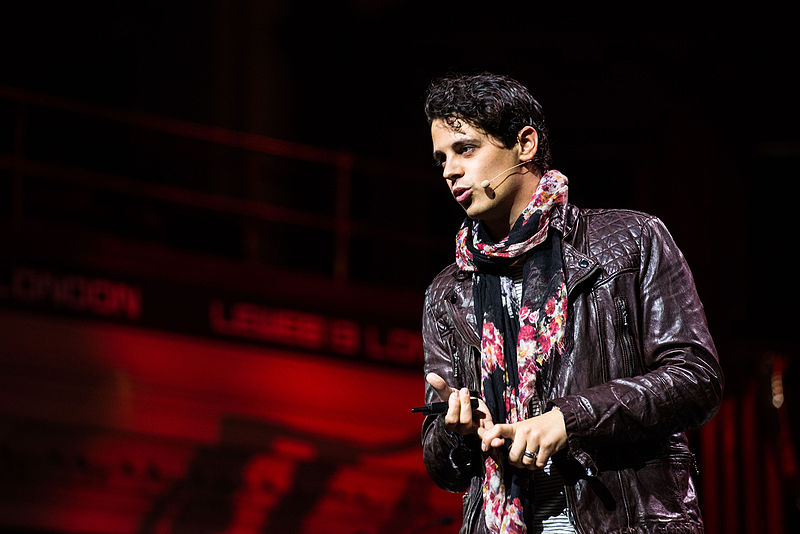Written by Miroslav Tomoski
In an echo of the campus movements of the past – when Vietnam and the struggle for civil rights were at the forefront of public discourse – students everywhere have returned to an era of protest. They have returned to the lingering tensions which have now been brought to the surface as a symptom of society at large.
In the 1960s the Free Speech Movement fought for the rights of students to freely discuss the world’s most controversial issues on campus, some have begun to see a different pattern in the demands of today’s youth — one that departs from a tradition of open dialogue.
Coupled with the outrage that stems from the continued injustices of modern society is a desire to veil the uglier sides of that society. It’s a tempting, yet rather simple, solution to mask the opinions and viewpoints with which progressive-minded campuses might disagree. As a result of that temptation, a pattern of intellectual isolation has now transformed the nature of free speech on campus where it otherwise might be expected to thrive.
That pattern has reached such noticeable heights in recent years that CNN’s Fareed Zakaria made it the focus of his commencement speech to Bucknell University in May, 2017.
“American universities these days seem to be committed to every kind of diversity — except intellectual diversity,” Zakaria warned on his weekly CNN program, GPS. “Conservative voices and views, already a besieged minority, are being silenced entirely.”
A 2016 survey from the Higher Education Research Institute at UCLA found that 43 percent of students now believe that banning offensive speech is acceptable, while data from the Foundation for Individual Rights in Education (FIRE) suggests that this pattern has been building for some time. FIRE has documented nearly 250 cases since 2009 in which conservative leaning figures have been prevented from speaking at public events.
This lack of intellectual diversity has come at a time when the student body is more diverse than it’s ever been. According to PEW Research, women now outnumber men on American college campuses and the number of minorities enrolling is on a steady rise. That trend is echoed by Statistics Canada, which finds that nearly 60 percent of enrollees nationwide are female.
The increase in enrollment among these groups has also made minority and women’s issues more prevalent on campuses as they strive to create a comfortable learning environment for all students. These conversations are a welcome challenge to traditional values and a sign that our traditions need to be reevaluated.
It is an uphill struggle that tempts a form of intellectual isolation. Yet there remains a danger in silencing the voices we disagree with. A danger of driving bigotry and ignorance into hiding rather than confronting it in the open. A danger of transforming those who hold deplorable ideas into champions of free speech, turning the focus onto their cause rather than their message.
Defenders of tradition have also been brought out of the woodwork; from deliberate trolls like former Breitbart editor Milo Yiannopoulos to more sincere attempts to defend conservatism from speakers like The Daily Wire’s Ben Shapiro.
They’ve taken to college campuses only to find a collection of intellectuals that are as isolated from differing points of view as their social media profiles. Engaging in comfortable conversations with like-minded individuals and ‘blocking’ all the rest.
In a recent Netflix interview with David Letterman, former president Barack Obama spoke about that ability to filter the opinions we hear saying, “At a certain point you just live in a bubble and that’s part of why our politics are so polarized right now.”
That isolation has been seen on American campuses such as Notre Dame, where last year nearly 200 students walked out on a commencement speech by Vice President Mike Pence in protest of his policies against marginalized communities. At Berkeley, a speech from conservative pundit Ann Coulter was canceled out of concern for her safety, while an appearance from Yiannopoulos sparked off campus riots.


That urge to silence those who might have offensive views also has the potential to breed a polarized culture in which out-of-sight-out-of-mind is the guiding philosophy and interactions with an intellectual opponent are automatically hostile. While the Canadian political climate might seem less partisan than that of our neighbours to the south, that doesn’t mean that our campuses – and by extension our communities – are any less divided.
As Oren Segal, director of the Anti-Defamation League’s Center on Extremism, says, “College campuses are a microcosm of our society,” but unlike the world off campus, students now have an overwhelming power to control the discourse the same way they have the power to control what they see on Instagram.
In fact, Canadian students were well ahead of their American counterparts at Berkeley when the University of Toronto blocked an appearance from Ann Coulter in 2010. While in 2016, conservative commentator and founder of Rebel Media, Ezra Levant’s speech at the University of Toronto was interrupted by the pulling of a fire alarm.
In March of 2017, Danielle Robitaille, a lawyer who assisted in defending former CBC Radio host Jian Ghomeshi in his sexual assault case, had her lecture at Wilfrid Laurier University canceled for fear that her presence on campus could traumatize victims of sexual assault.
But perhaps the most famous Canadian case of a controversial speaker turned celebrity has been the University of Toronto’s psychology professor, Jordan Peterson.
Peterson is such a reviled figure on the left that other panelists refused to debate him at an event scheduled at McMaster in March 2017, leaving the professor alone to interact with student protesters who eventually forced him to leave the campus.
Staff and students at the University of Toronto have made repeated calls for Peterson’s termination, while others who present his arguments on campuses across the country have endangered their careers.
The professor has become something of an online celebrity after opposing Bill C-16, federal legislation which would extend hate speech protections to transgender individuals by requiring Canadians to use their preferred pronouns.
Peterson has publically spoken out against the bill, which has since passed into law, both on campus and in the media, including his YouTube channel where he has posted several videos of his views on a range of topics.
In a speech he gave to students at the University of Toronto, arguably the one which launched him to notoriety, he insists that he is not transphobic and his opposition to the new law is simply a matter of free speech.
“I’m not going to talk about sexual politics, it’s not my primary concern,” he says to a crowd of supporters eagerly listening while the protesters actively try to shut his microphone off, “What I’m going to talk about is freedom of speech.”
Last spring, Peterson was brought before the Senate to voice his opinion and doubled down on his free speech claim to a more reserved audience.
“There hasn’t been a piece of legislation that requires Canadians to utter a particular form of address, that has particular ideological applications, before,” the professor said to a room full of senators and spectators, “I think that it’s a line that we shouldn’t cross.”
To be sure, Peterson’s legal argument is compelling and even true to legislative history. The rights and freedoms afforded to Canadians have never compelled citizens to act or speak in a certain way. Instead, they have promised freedom from certain violations.
But where Peterson’s argument begins to fall apart is when his freedom to speak is fully granted and where he refuses to respect the wishes of his students regardless of the law, as he has said when confronted by protesters.
In his multiple YouTube confrontations, sometimes posted by Peterson himself, he is seen engaging with students, refusing to use their preferred gender pronouns and insisting that mutual respect is something that is earned, not freely given. When given the chance to speak, Peterson refuses to extend the same freedom of expression he is fighting so hard to protect. But in censoring his speech, students have removed the professor’s right to trip over his own words and have made him a martyr for the cause of free speech.
“Shutting [speech] down is not always the best approach, it’s more about exposing it for what it is,” says the ADL’s Segal. “We have always believed that sunlight is the best disinfectant. So for us, it’s not about trying to censor somebody, it’s actively exposing it and using the freedom of speech that we have to explain why somebody is wrong, or hateful, or bigoted and the impact that it has.”


Peterson now collects far more from the crowdfunding website, Patreon, than he was ever paid at the U of T. His newest self-help manifesto, 12 Rules for Life, has topped Amazon’s best-seller list, edging out Michael Wolff’s Fire and Fury.
The campus should be a place where the most controversial issues of the day are discussed openly, not with the intention of hurting someone or forcing them to relive past traumas, but with the knowledge that universities are a place that ought to prepare students for a world beyond the campus where opposing viewpoints are impossible to avoid.
“Students should encounter people with ideas they find upsetting,” FIRE’s Adam Goldstein insists. “That’s a crucial life skill. Just like we need to learn to lose gracefully, we need to listen gracefully.”
Beyond preparing for uncomfortable encounters, students themselves have to determine the kind of world they will create after they graduate. In order to do that, they have to seek out opposing views to understand why they deserve to be opposed. Approaching information with an open mind and actively seeking out contrary views are critical habits that help us form a better understanding of our own worldview. In essence, it’s not simply about respecting someone’s right to speak, it’s a crucial balancing act to ensure that our real world experiences don’t match the filtered environments we construct when technology gives us the opportunity to censor them.
“People tend to solidify their opinions when everyone they talk to feels the same way,” Goldstein says, “and that’s true whether it’s a small liberal arts college or their Facebook newsfeed. Either way, it does not prepare you for dealing with the world at large.”
Silence on issues of sex and race have often been a specter on campuses, but once that conversation has begun, it’s just as damaging to push the more problematic aspects on these issues underground where they can’t be confronted and corrected. Fundamentally, a university campus is the perfect setting for this kind of conversation because it’s a place to engage ideas, test them against each other, and allow the brighter ones to shine through. It’s an environment that ought to welcome the benefit of debate
As Zakaria advised the students of Bucknell before they entered the foreboding, ‘real world’:
“Freedom of speech, freedom of thought, is not freedom for people we like, for warm, fuzzy ideas that we find comfortable. It is for ideas that you find offensive; there is no idea that is beyond the pale. Everything should be within the arena and should be worth contesting.”








